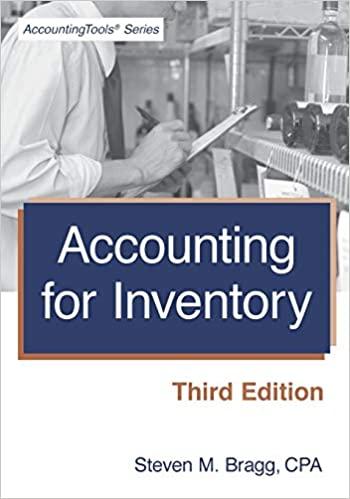Answered step by step
Verified Expert Solution
Question
1 Approved Answer
Energy Accounting 1. The accounting treatment for cost such as delingquent taxes and mortgage payments are capitalized or recorded as recievable depending on collectibility. t/f
Energy Accounting
1. The accounting treatment for cost such as delingquent taxes and mortgage payments are capitalized or recorded as recievable depending on collectibility. t/f
2. "Problem reserves" includes those additional reserves that are less certain to be recovered than proved reserves but which, in sum with proved reserves, are as likely as not to be recovered. t/f
3. In order to be classified as development, a well must be drilled with the objective of finding new proved oil and gas reserves, while an exploratory well is drilled for purposes of assessing previously proved reserves and transitioning them from undeveloped to developed. t/f
4. The impairment test for proved properties considers developed and undeveloped reserves, including a risk-adjusted measurement of probable and possible reserves. t/f
5. Unproved properties must be assessed for impairment on a periodic basis, at least anually, to determine if they have been impaired. t/f
6. When a company acquires a lease it sets up the property in a property database. t/f
7. The entries required to account for a development well are virtually identical to those made to account for an exploratory well up to the point when the outcome of drilling is known. t/f
8. G & G studies are sometimes exchanged for interest in property. t/f
9. G & G expense are recorded as a credit in the accounts. t/f
10. Proved properties contain estimated quanities of oil and gas that geoscience and engineering data demonstrate with reasonable certainty to be economically producible in the future under exsisting economic conditions, operating methods and government regulations, also referred to as proved reserves. t/f
11. The accounting method that a company chooses does not affect how its net income and cash flow numbers are reported. t/f
12. All of the parties of a joint interest agreement pay for the cost of joint interest audits. t/f
13. The FASB guidance for accounting for asset retirement obligations applies to both successful efforts and full cost companies. t/f
Step by Step Solution
There are 3 Steps involved in it
Step: 1

Get Instant Access to Expert-Tailored Solutions
See step-by-step solutions with expert insights and AI powered tools for academic success
Step: 2

Step: 3

Ace Your Homework with AI
Get the answers you need in no time with our AI-driven, step-by-step assistance
Get Started


